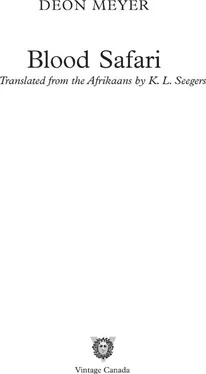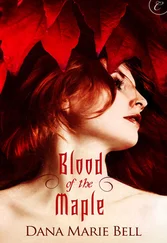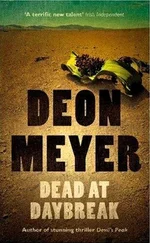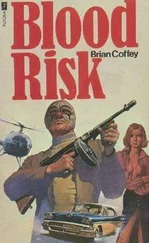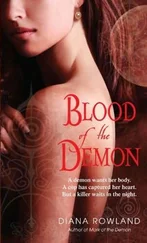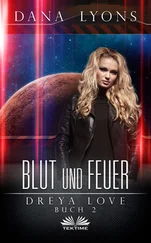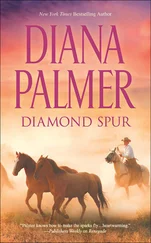Deon Meyer - Blood Safari
Здесь есть возможность читать онлайн «Deon Meyer - Blood Safari» весь текст электронной книги совершенно бесплатно (целиком полную версию без сокращений). В некоторых случаях можно слушать аудио, скачать через торрент в формате fb2 и присутствует краткое содержание. Жанр: Старинная литература, на английском языке. Описание произведения, (предисловие) а так же отзывы посетителей доступны на портале библиотеки ЛибКат.
- Название:Blood Safari
- Автор:
- Жанр:
- Год:неизвестен
- ISBN:нет данных
- Рейтинг книги:4 / 5. Голосов: 1
-
Избранное:Добавить в избранное
- Отзывы:
-
Ваша оценка:
- 80
- 1
- 2
- 3
- 4
- 5
Blood Safari: краткое содержание, описание и аннотация
Предлагаем к чтению аннотацию, описание, краткое содержание или предисловие (зависит от того, что написал сам автор книги «Blood Safari»). Если вы не нашли необходимую информацию о книге — напишите в комментариях, мы постараемся отыскать её.
In Blood Safari
A complicated man with a dishonorable past, Lemmer just wants to do his job and avoid getting personally involved. But as he and Emma search for answers from the rural police, they encounter racial and political tensions, greed, corruption, and violence unlike anything they have ever known.
Blood Safari — читать онлайн бесплатно полную книгу (весь текст) целиком
Ниже представлен текст книги, разбитый по страницам. Система сохранения места последней прочитанной страницы, позволяет с удобством читать онлайн бесплатно книгу «Blood Safari», без необходимости каждый раз заново искать на чём Вы остановились. Поставьте закладку, и сможете в любой момент перейти на страницу, на которой закончили чтение.
Интервал:
Закладка:
I shook my head, partly because I disagreed with her, partly because I couldn’t believe I was doing this. ‘Wine doesn’t taste nice. Period. It’s not as bad as whisky, but it’s worse than beer. It’s not nearly as nice as grape juice. But grape juice isn’t sophisticated, even though it looks different in sunlight and candlelight. Sweet wine is the exception. But nobody drinks that in cultivated company, not even a good late harvest. Why not? Because it simply does not enjoy the same status. And there’s the whole answer. Status. It’s an old thing. Our civilisation originated in Mesopotamia, but grapes didn’t thrive there. The Mesopotamians made beer out of grain and everyone drank it. But the rich don’t want to drink what everyone drinks. So they imported wine from the highlands of Iran. And because it cost more, because the common people could not afford it, it gained status, regardless of how it tasted. So they created the myth – wine is for the cultivated tongue, for the well-to-do taste. Eight thousand years later, we still believe it.’
I liked the way she looked at me while I spoke. When I’d finished, she laughed, a short happy sound, like someone who has unwrapped a present. She was about to say something, but the wine waiter arrived and she turned her attention to him and said, ‘I would like this bottle of Merlot and I want the best red grape juice that you have and bring us two extra glasses please.’
The waiter jotted his notes and when he had left she leaned back in her chair and said, ‘Where have you been hiding, Lemmer?’ She held her tiny hand up and said, ‘Never mind, I’m just glad you’re here. Are you a reader? How do you know these things?’
Four years in jail, Emma le Roux, is a lot of time on your hands.
‘I’ve read a bit.’
‘A bit? What do you read?’
‘Non-fiction.’
‘Such as?’
‘Anything.’
‘Come on. Tell me about something you’ve read recently.’
I thought for a while. ‘Did you know that the history of South Africa was determined by grass seed?’
She raised an eyebrow, the corners of her mouth twitched. ‘No.’
‘It’s true. Two thousand years ago there were only Khoi and San people here. They were nomads, not farmers. Then the Bantu people came down from East Africa with cattle and sorghum and they pushed out the Khoi and the San people to the western half of South Africa. Why there? Because the sorghum seed was a summer crop and the western parts are winter rainfall areas. That’s why the Xhosa never settled farther than the Fish River. They needed summer rain. Four hundred years ago the Europeans arrived at the Cape with winter cereals. The Khoi couldn’t stop them; the difference in technology was too great. Think about it: if the Xhosa and Zulu had winter grains, how different the history would have been, how difficult it would have been for the Dutch to establish a halfway station at the Cape.’
‘Astonishing.’
‘It is.’
‘Where did you read that?’
‘A book. Popular science.’
‘And the language thing?’
‘What about it?’
‘You said you were a taalbul?’
‘Yes. Sort of.’
‘And?’
‘Well, take Susan, for instance. She knew we were Afrikaans. She could tell from your name and surname. She could hear your accent. But she speaks English to us. Why?’
‘Tell me.’
‘Because she works with foreigners mostly and she doesn’t want them to know she’s an Afrikaans girl. There’s too much baggage. She wants the tourists to like her, to think she’s cute. She doesn’t want to be judged and labelled by her language and its history.’
‘She doesn’t like the positioning of Afrikaans as a brand.’
‘That’s it, exactly. What I don’t understand is why she … why we all don’t do something about that position. The solution is not to hide away. The solution is to change the perception of the brand.’
‘Is that possible?’
‘Isn’t that what you do?’
‘It is, but a language is a little more complex than ketchup.’
‘The difference is that everyone who cares about the ketchup will work together to change the perception. The boere simply won’t do that.’
Emma laughed. ‘That’s true.’
The waiter brought the bottle of Merlot, a bottle of grape juice and two extra glasses. He started to pour, but Emma said thank you, she would do it herself. She slid an extra wineglass over to me. ‘Just try one mouthful,’ she said. ‘A tiny bit, then tell me truthfully that it doesn’t taste good.’
She poured for me. I took the glass.
‘Wait,’ she said. ‘First breathe it in.’ She poured herself half a glass, turned it in her hand and held it under her nose. I did the same. There were pleasant aromas, but there was also something else.
‘What do you smell?’ she asked.
How could I tell her? That my past was locked away in the smell of wine, memories of where I came from, who I am.
I shrugged.
‘Come on, Lemmer, be objective. Can you smell the cloves? The berries? It’s subtle, I know, but it’s there.’
‘It’s there,’ I lied.
‘Good. Now taste it.’ Then she took a sip, rolled the wine around in her mouth, looked at me in expectation. I swigged some wine. It had a dark flavour, like the smoke of a smouldering fire. She swallowed. ‘Now tell me it tastes bad.’
I swallowed. ‘It tastes bad.’
She laughed again. ‘Truly, Lemmer? Truly?’
‘Taste the grape juice. Objectively and honestly.’ I poured into the spare glasses. ‘You don’t even have to smell it. Just taste.’
‘OK,’ she said with an amused smile, and we drank.
‘Crisp,’ I said. ‘Taste the subtle fruit flavour, unmistakably grape. Young, refreshing, pure joie de vivre.’
She laughed. I liked that.
‘Feel the way the bubbles dance on your tongue, tiny explosions of ecstatic, undisguised honesty, stripped of all pretension. This noble liquid need not pretend, need not ride on the back of eight thousand years of brand positioning. It is here, unadulterated juice, immediately delicious, pure drinking pleasure.’
She laughed loudly, nearly choking, her eyes shut and her pretty mouth open. The other diners’ heads turned towards the happy notes, and they couldn’t resist smiling. Lightning flashed outside the windows, thunder crashed close by, rumbling and rolling from north to south like a runaway locomotive.
Just before we ordered dessert, I inexplicably said on the spur of the moment, ‘My friend who phoned, at the airport …’
‘Antjie,’ Emma replied with a mischievous twinkle. Her memory surprised me.
‘She’s nearly seventy years old.’
‘Wonderful,’ said Emma. I wished I knew what she meant by that.
* * *
She was tipsy when we left the restaurant. She held on to my arm. It was raining outside, a thick curtain of fat storm drops. I hovered on the threshold. She pulled off her sandals and took my arm again. ‘Let’s go.’ We went outside and were immediately drenched. The rain was warm and the air not cool yet. Her hand held me back so we didn’t walk fast. I watched her. She had turned her face up to the rain, eyes shut, and the running water turned her mascara into black tears. She let me lead her like a blind person. The white dress clung. I saw the curves of her body. Water streamed over my face, over my eyes. The rain rattled on the path, in the trees, and on the thatched roofs. It was the only sound in the night.
At the Bateleur suite she dropped my arm, threw her sandals in an arc on to the veranda and stayed out in the rain. I went under the roof, unlocked the door, sat down on one of the chairs and pulled off my socks and shoes. She stood out there with her face upturned and arms stretched to the sky. Accepting the invitation, the rain increased in intensity, and the streams of water shone in the light of the veranda.
Читать дальшеИнтервал:
Закладка:
Похожие книги на «Blood Safari»
Представляем Вашему вниманию похожие книги на «Blood Safari» списком для выбора. Мы отобрали схожую по названию и смыслу литературу в надежде предоставить читателям больше вариантов отыскать новые, интересные, ещё непрочитанные произведения.
Обсуждение, отзывы о книге «Blood Safari» и просто собственные мнения читателей. Оставьте ваши комментарии, напишите, что Вы думаете о произведении, его смысле или главных героях. Укажите что конкретно понравилось, а что нет, и почему Вы так считаете.
